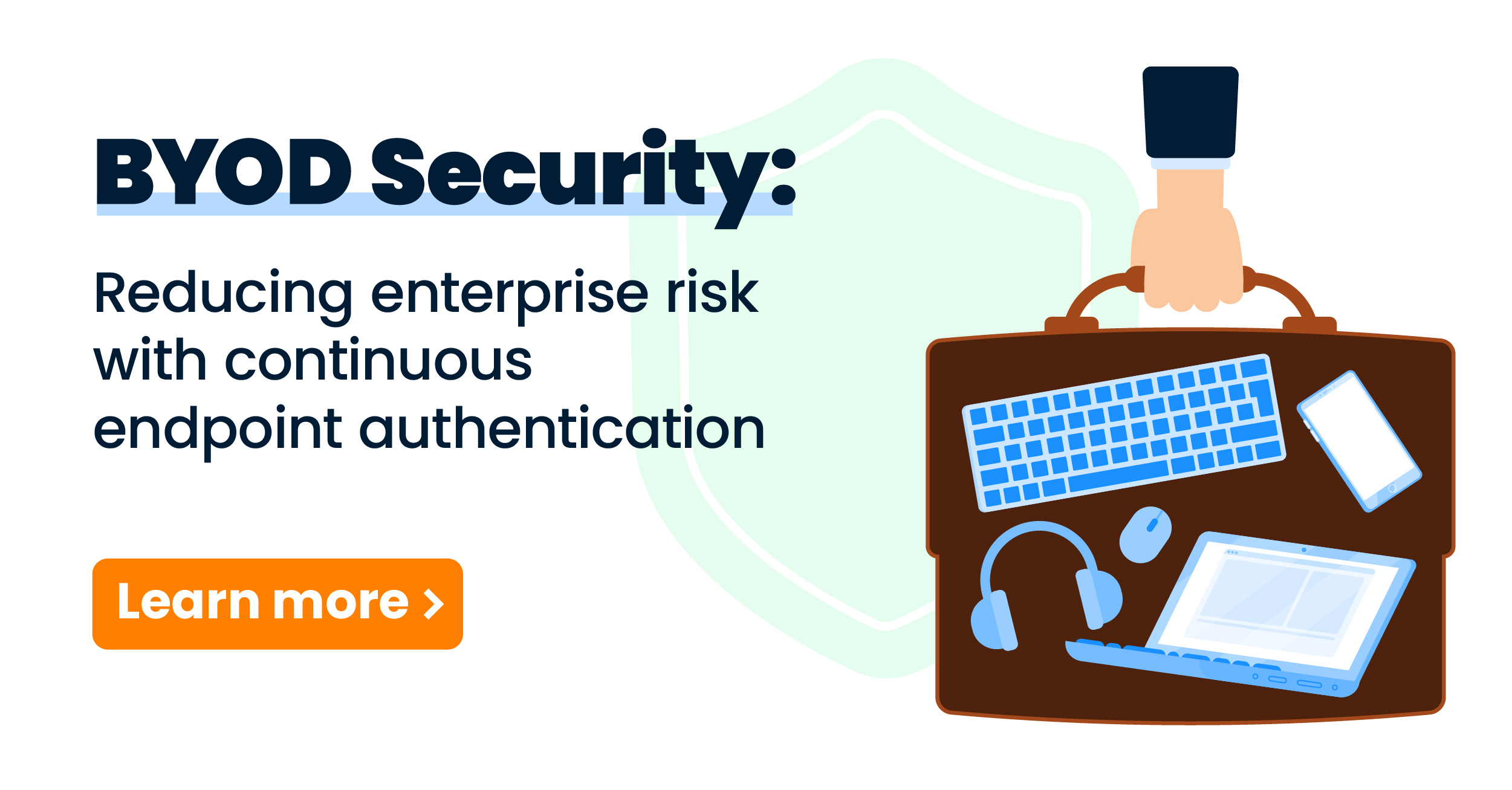BYOD Security: Key Strategies for Business Protection
In today’s digital landscape, BYOD security has emerged as a critical concern for organizations embracing Bring Your Own Device (BYOD) policies. While these initiatives can enhance collaboration and reduce costs, they also expose businesses to significant security risks, including data breaches and unauthorized access to sensitive information. A well-defined BYOD policy is essential for outlining clear guidelines that govern the use of personal devices within the workplace, thereby fortifying company network security. Key components of this policy must include specifications on allowed devices, restrictions on data transfer, and the implementation of robust security measures such as encryption and remote data wiping. Additionally, investing in cybersecurity insurance can further protect businesses from the financial repercussions associated with potential data breaches and cyber threats linked to BYOD practices.
As organizations increasingly adopt Bring Your Own Device (BYOD) strategies, the focus on safeguarding corporate data becomes paramount. These flexible arrangements not only encourage employee productivity and engagement but also present unique challenges regarding data protection and cybersecurity. The merging of personal and professional devices raises concerns over unauthorized access and data loss, necessitating the establishment of comprehensive guidelines for device usage. By instituting a formal BYOD framework, companies can define acceptable practices for integrating personal technology into their operations, ensuring that network security remains intact. Furthermore, exploring options like cybersecurity insurance can help mitigate the financial risks associated with potential breaches, reinforcing the need for proactive management in this evolving digital environment.
Understanding BYOD Security Risks
BYOD, or Bring Your Own Device, has transformed workplace dynamics, allowing employees to use their personal devices for professional tasks. This flexibility can enhance collaboration and productivity; however, it also introduces significant security vulnerabilities. When personal devices connect to the company network, they can become potential entry points for cyberattacks, making data protection a paramount concern for organizations. Companies must recognize that the convenience of BYOD comes hand-in-hand with notable risks, including data breaches and unauthorized access to sensitive information.
As employees increasingly blend their work and personal lives, the challenge of securing data escalates. Personal devices often lack the robust security measures implemented on company-owned equipment, leaving them more susceptible to threats. It is crucial for businesses to establish stringent BYOD policies that outline the risks involved and provide clear guidelines for employees to follow, thereby ensuring that data protection strategies are effectively communicated and enforced.
The Importance of a Comprehensive BYOD Policy
A well-defined BYOD policy is essential for any organization looking to manage the risks associated with personal devices. This policy should clearly outline the types of devices that are permitted, the applications that can be used, and the security protocols employees must adhere to. For instance, specifying that only devices with up-to-date operating systems and approved antivirus software can connect to the company network can significantly enhance cybersecurity. By establishing clear expectations, organizations can foster a culture of security awareness among employees.
Moreover, a comprehensive BYOD policy should include provisions for data transfer and synchronization. Limiting the type of data that can be accessed on personal devices, along with implementing remote data wiping capabilities, can protect sensitive information in the event of a lost or stolen device. By proactively addressing these security measures, companies can mitigate potential data breaches and protect their overall network integrity.
Setting Clear Expectations for Employees
To effectively manage BYOD security, it is crucial for businesses to set clear expectations regarding employee responsibilities. This includes outlining the company’s stance on liability for personal devices, which should clarify that the organization is not responsible for loss or damage to these devices. Employees should also be made aware of the consequences of non-compliance with the BYOD policy, fostering accountability and encouraging adherence to security protocols.
Additionally, companies should provide training and resources to help employees understand the importance of cybersecurity. By educating staff on the risks associated with personal devices and the necessary precautions they need to take, organizations can create a more secure environment. Training sessions could cover topics such as the importance of using secure connections, recognizing phishing attempts, and maintaining updated security software, all of which contribute to robust data protection.
Enhancing Data Protection Through Technology
In today’s digital landscape, technology plays a critical role in enhancing data protection for BYOD environments. Implementing mobile device management (MDM) solutions can help organizations monitor and secure personal devices that access company data. MDM tools allow IT departments to enforce security policies, manage applications, and ensure that data remains secure, even when accessed from personal devices.
Furthermore, companies can leverage encryption technologies to protect sensitive information stored on personal devices. By encrypting data, businesses can ensure that even if a device is compromised, the information remains unreadable to unauthorized users. This dual-layer approach—combining policy enforcement with advanced technology—is essential for safeguarding company data in a BYOD setting.
Leveraging Cybersecurity Insurance for Added Protection
Investing in cybersecurity insurance is a prudent strategy for businesses participating in BYOD programs. This type of insurance can provide financial protection against the repercussions of data breaches, privacy violations, and other cyber threats associated with personal devices. Tailored cyber liability policies can cover a range of incidents, from network security breaches to liability arising from unintentional data exposure.
In addition to offering financial recovery options, cybersecurity insurance can also provide access to valuable resources and expertise in the event of a security incident. Many insurance providers offer risk assessment tools and support in developing incident response plans, enabling businesses to prepare for potential cyber threats more effectively. By combining a formal BYOD policy with cybersecurity insurance, companies can create a robust framework for managing risks associated with personal device usage.
Creating a Culture of Cyber Awareness
Establishing a culture of cyber awareness is vital for the success of any BYOD program. Organizations should actively promote cybersecurity best practices among employees, emphasizing the significance of protecting company data when using personal devices. Regular training sessions and awareness campaigns can keep cybersecurity at the forefront of employees’ minds, reducing the likelihood of security breaches caused by human error.
By fostering a culture where employees feel responsible for data protection, organizations can enhance their overall cybersecurity posture. Encouraging open communication about potential threats and providing channels for reporting suspicious activities can empower employees to take proactive steps in safeguarding both their personal devices and company data. This collaborative approach is essential for navigating the complexities of BYOD security.
The Role of IT in BYOD Management
The IT department plays a crucial role in managing BYOD policies and ensuring compliance with security protocols. IT professionals must work diligently to monitor the use of personal devices within the company network, implement necessary security measures, and provide support to employees. This includes conducting regular audits of devices connected to the network and ensuring that all devices adhere to the established BYOD policy.
Additionally, the IT department should stay informed about the latest cybersecurity threats and trends to adapt the BYOD policy as needed. By continuously evaluating and updating security measures, IT can help mitigate risks associated with personal devices, ensuring that the company’s data remains protected against evolving cyber threats.
Best Practices for Effective BYOD Implementation
To successfully implement BYOD programs, organizations should adopt best practices that prioritize data security and employee compliance. This includes conducting thorough risk assessments to identify potential vulnerabilities associated with personal devices. By understanding the specific risks that exist within their unique environment, companies can tailor their BYOD policy to address these concerns effectively.
Another essential practice is to promote transparency regarding the BYOD policy among employees. Regularly updating staff on policy changes and reinforcing the importance of compliance can foster a sense of ownership over data protection. By creating a collaborative environment where employees are encouraged to engage with the BYOD policy, organizations can enhance their overall cybersecurity efforts and minimize risks associated with personal devices.
Evaluating the Impact of BYOD on Business Operations
As organizations embrace BYOD programs, it is essential to evaluate the impact on overall business operations. While personal devices can enhance productivity and collaboration, they also introduce complexities in managing data security. Companies must continually assess how BYOD practices affect their operational efficiency and identify areas where improvements can be made.
Gathering feedback from employees regarding their experiences with BYOD can provide valuable insights that inform policy adjustments. Understanding employee concerns and challenges can help organizations refine their approach to BYOD management, ensuring that both productivity gains and security measures are effectively balanced.
Frequently Asked Questions
What security risks are associated with BYOD programs?
BYOD programs can expose companies to significant security risks, including data breaches, unauthorized access to sensitive information, and vulnerabilities to cyberattacks as personal devices connect to the company network.
How do I create a BYOD policy that enhances cybersecurity?
To create an effective BYOD policy, outline guidelines for device usage, specify approved applications, enforce security measures like encryption and remote data wiping, and ensure employees connect to the company network only through secure connections.
Why is cybersecurity insurance important for businesses with BYOD policies?
Cybersecurity insurance is crucial for businesses with BYOD policies as it provides financial protection against data breaches, privacy violations, and liabilities associated with cyber threats linked to personal devices.
What components should be included in a BYOD policy for data protection?
A comprehensive BYOD policy should include allowed device types, restrictions on data transfer, security measures such as antivirus software, and protocols for remote data wiping to protect sensitive company information.
How can businesses ensure data protection when employees use personal devices?
Businesses can ensure data protection by implementing a formal BYOD policy that mandates security practices like keeping operating systems updated, using encryption tools, and limiting data synchronization with personal devices.
What are the challenges of managing BYOD security?
Challenges of managing BYOD security include ensuring compliance with security protocols, monitoring personal devices for vulnerabilities, and balancing employee privacy with the need to protect company data.
How does a BYOD policy impact company network security?
A well-defined BYOD policy enhances company network security by establishing clear guidelines for device use, enforcing security measures to prevent unauthorized access, and minimizing the risks associated with personal devices.
Can personal devices compromise company data security?
Yes, personal devices can compromise company data security if they are not adequately secured, as they can serve as entry points for cyberattacks and lead to data breaches if proper protection measures are not in place.
What steps should employees take to secure their devices under a BYOD policy?
Employees should secure their devices by installing company-approved antivirus software, keeping their operating systems updated, using strong passwords, and following the guidelines outlined in the BYOD policy for data protection.
What role does employee training play in BYOD security?
Employee training is essential in BYOD security as it educates staff about the risks of using personal devices, reinforces compliance with the BYOD policy, and promotes best practices for securing sensitive company information.
| Key Point | Details |
|---|---|
| Advantages of BYOD | Enhanced collaboration, improved productivity, cost savings. |
| Security Risks | Data breaches, unauthorized access, cyberattacks due to personal devices connecting to corporate networks. |
| Formal BYOD Policy | Outlines guidelines on device usage, approved applications, and secure connections. |
| Policy Components | Allowed device types, restrictions on data transfer, enforcement of security measures (encryption, remote wiping). |
| Cybersecurity Insurance | Provides financial protection against data breaches and cyber threats related to BYOD. |
Summary
BYOD security is a critical aspect for businesses adopting Bring Your Own Device policies. While these programs offer numerous advantages such as enhanced collaboration and cost savings, they also pose significant security risks, including data breaches and unauthorized access to sensitive information. Establishing a formal BYOD policy is essential to mitigate these risks by outlining clear guidelines for device usage and approved applications. By implementing necessary security measures and considering cybersecurity insurance, companies can protect their data and enjoy the benefits of BYOD.







